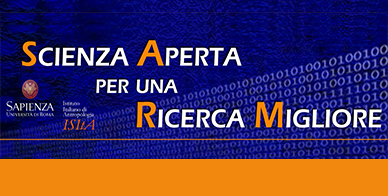Open Science for better research methods, processes and practices

The conference was distributed on three days (5-7 March 2015), and focussed on open science as the crucial point and action to ensure a genuine and durable improvement in National and International research.
Experts from the academia and the research world, from the science journalism, the publishing and communication (broadly speaking) sector discussed on open science and on the main issues related to it. They urged for a multidimensional, systemic, uniform and coherent strategy in our Country; it is fundamental, in fact, to harmonise initiatives and to act against fragmentation and occasionality of efforts, in order to involve effectively all the stakeholders in favour to knowledge commons, according to J.-C. Guédon.
Openness, sharing, access, transparency, quality: the S&TDL keywords also define the open world of research in its fundamental articulation, open science, open access, open research data. At the same time, connections with education and training are strengthening, from school to vocational training, from university to post-graduate education and training, from long-life learning to e-learning, in the name of the new watchwords open education and open educational resources.
The Conference offered a rich programme in four sessions:
- A multidisciplinary vision of Open Science
- New perspectives for Open Science
- The state of the art of Open Science practices
- Open Science in Italy: setting policies and actions.
Open Science in Italy: setting policies and actions
During the last conference session, the discussion extended from Open Access, limited to the final part of the scientific information cycle, beyond the scholarly communication system, to the Open Science complexity, that concerns crosswise R&D processes, stakeholders and phenomena.
The first discussed issue underlines the need for a radical reform of copyright, and of intellectual property in general, and also the need for the development of new scholarly publishing models, which combine market needs with open access to publications and data. At the same time, the scientific community need to regain control over publications and quality of results was stressed.
However currently these issues, although right and valid, can no longer be disconnected from a complete redefinition of the overall system.
Because of the close and bidirectional relation existing between science and society, it is essential to act in a coordinated way so that science can effectively contribute to the growth of the Country, with a commitment on different aspects, like:
- To guarantee transparency and access to research processes and results, improving their quality and effectiveness
- To ensure the sharing not only of research results, but also of infrastructures, tools and services
- To raise the consciousness and responsibility of citizens thanks to the increasing awareness and the wide spread of scientific knowledge, especially among the young.
In this framework the multilevel interoperability is crucial – embracing the political context and legislative, regulatory and legal levels, the organisational, technical and technological levels – together with a common language, shared by all the stakeholders beyond their cultural, social and individual differences.
The foundation of the Italian Association for the promotion of Open Science (AISA - Associazione Italiana per la promozione della Scienza Aperta) had been announced during the debate, in line with the main priorities and inspiring principles clarified and discussed in the Conference.
The speech held by CNR experts put the emphasis on the importance of sharing, both on a theoretical and practical level, a National strategy for Open Access that is really multidimensional and systemic, thanks to a complete and consistent vision of the main phenomena linked to OA and scholarly communication: such an approach can really favour the effectiveness, adequacy and coherence of the initiatives.
Download the English presentation, A multidimensional strategy for Open Access, and the related abstract in Italian.


